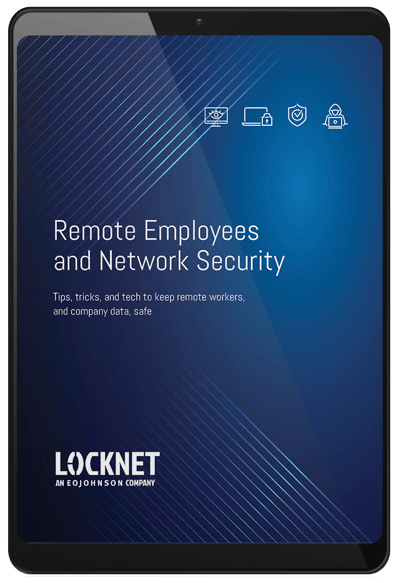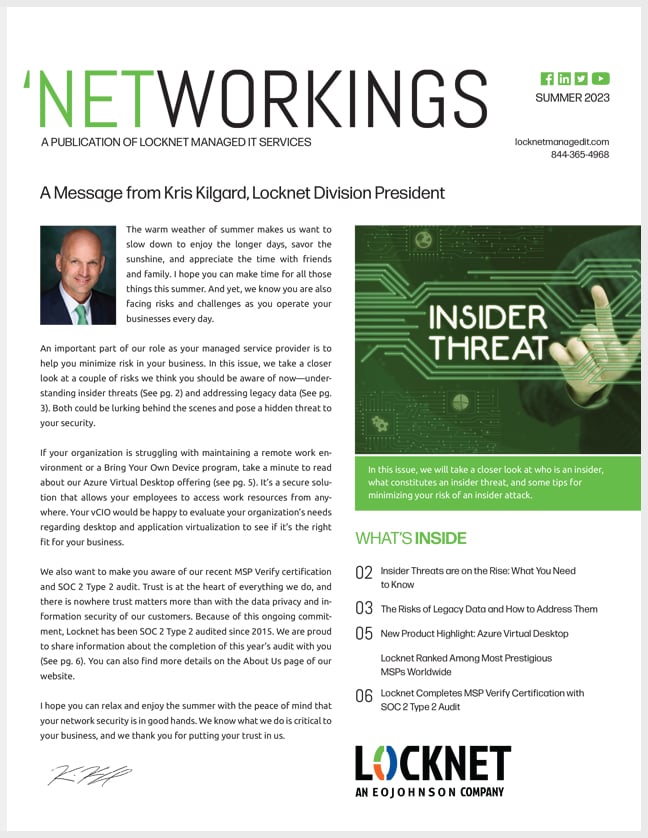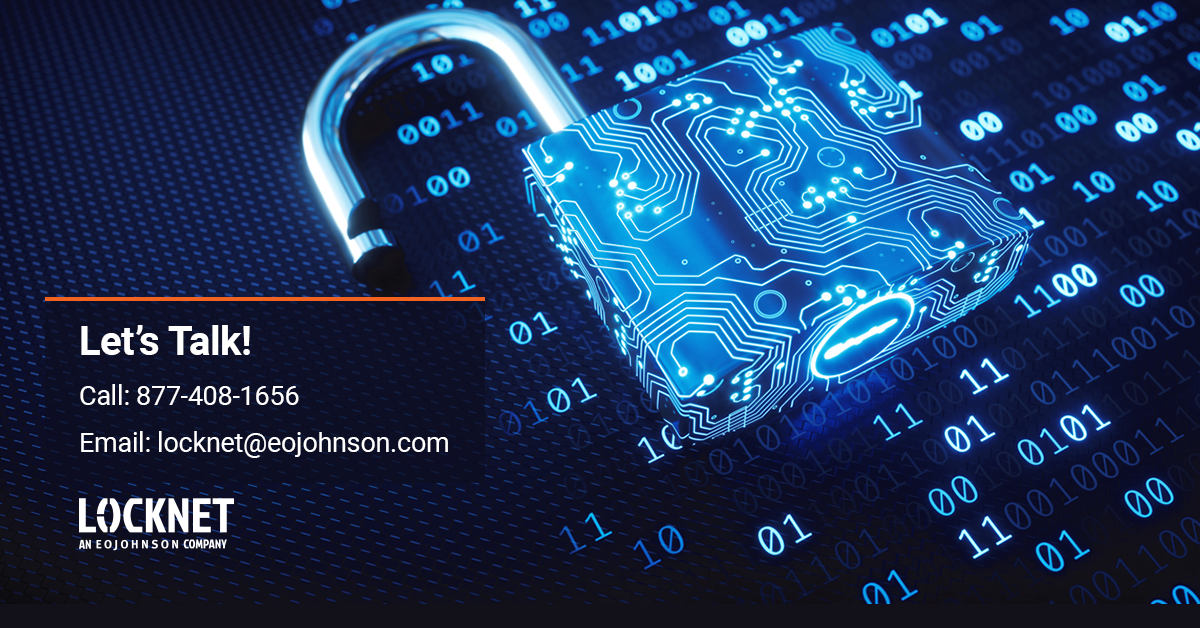Tips for Protecting Data Privacy
No doubt by now we have all heard that data privacy is important, and we have seen the evidence of why in news of data breaches and identity theft. But the concept still seems nebulous to many of us. After all, day after day we are asked to create passwords for various platforms, give our personal information to businesses, and post regular updates on our status to social media. Anyone who has searched their own name online will find a shocking amount of their personal information is just out there, in cyberspace. If we step back and look at it, privacy—data or no—seems like a thing of the past; something we gave away when we signed up for the latest "free" offering on the internet or bought a house or applied for a credit card. We continue to lock our homes and cars to protect our belongings, and we cover the keypad when we enter our pin number at the checkout. But data privacy? Sometimes it seems that ship has sailed.
What is data privacy?
Data privacy is all about how we collect, share, and use information. The fact is, there are certain pieces of your data everyone has which simply must be carefully guarded. Your business may even have some of that information from your clients—data which, if it fell into the wrong hands, could result in identity theft, a competitor's gain, or at the very least, embarrassment for your company and damage to its reputation. Protecting that customer information is essential for maintaining the trust of your clients and preserving the interests of the company. And while you may have an entire IT department or Managed Service Provider partner protecting data privacy for the enterprise, data privacy is also a concern at the individual level.
Tips for protecting data privacy
There are several steps you and your colleagues can take toward protecting data privacy, whether at home or at their place of business. These simple steps can help keep data secure and prevent identity theft, a hack into your network, and other cybercrimes.
- Shred documents with personal or confidential information on them. This should include anything with personal or company data on it, including bank statements and other financial information, documents with health information, receipts, and any confidential documents.
- Secure both incoming and outgoing mail. You may want to install a mail slot or a mailbox that locks to prevent the theft of incoming our outgoing mail.
- Take care when providing personal information. Many companies may request personal data from you, but that does not mean you have to freely provide it. Ask questions, if someone wants your social security number, or other private data, before you provide it.
- Make passwords work harder. It is tempting to use the same password across all platforms, and to keep it simple so you can remember it. Fight the temptation—hackers these days have automated their processes so they can quickly and efficiently access private accounts by guessing passwords and checking them across multiple platforms. It is far more protective to use strong, complex passwords for all your accounts.
- Be careful what you post. Social media accounts tempt us to share too much personal information—and you may already be sharing more personal data than is advisable. Take a hard look at what you are sharing, through the lens of a criminal mind. Could someone use that information to steal your identity, or break into your accounts? Be protective of what you post to ensure your data is secure.
- Set up a data classification policy. It is important to provide definition to your employees on what information your company deems sensitive and how that information is handled with respect to the threat it poses to an organization if exposed.
Understanding data privacy and other risks
Working with the tech experts at Locknet® Managed IT can help you and your employees up your savviness when it comes to data privacy. We can develop security training that directly addresses the unique security concerns of your business and clientele. Contact us for more information about how we can help protect your data privacy.









